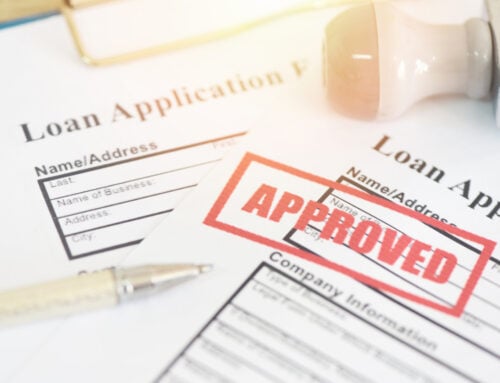Congratulations on finally deciding to build your dream home! This is an incredibly exciting time, but it’s also important to do your research and understand all of the different financing options available to you before getting started. In this post, we’ll take a look at construction loans and how they work.
When to Use Them
Construction loans are typically taken out by homebuyers who are planning to build a custom home from scratch or renovate an existing home to their exact specifications. If you’re buying a pre-built home or townhouse, you will more than likely need a standard mortgage loan.
How They Work
Construction loans work differently than traditional mortgages. Instead of receiving one lump sum at closing, you will usually make interest-only payments for the construction period, with the full loan amount being due when construction is complete. They are most often shorter-term loans, meant to be used over the course of a year or less.
During the construction phase, you will usually only be required to make interest payments on the loan. This means that your monthly payments will be lower than they would be if you were making principal and interest payments on a traditional mortgage. These loans typically have higher interest rates than standard mortgage loans, so you will end up paying more interest over the life of the loan.
When construction is complete and you are ready to move into your new home, you will need to apply for a new loan\ to pay off the construction loan. This is typically a standard mortgage loan, and you will be able to choose a repayment term that works for you.
What is it Used For?
Construction loans are used to finance both the purchase of land and the construction of the actual home. In most cases, you’ll need to take out two separate loans—one for the land and one for the construction itself—which will then be combined into a single mortgage when the construction is complete.
What are the Interest Rates Like?
Interest rates for construction loans are typically higher than for traditional mortgages—usually around 1% higher. This is because there’s more risk involved for the lender; if you default on a construction loan, they could end up losing both the money they’ve lent you for the land and the money they’ve lent you for the construction itself. As such, it’s important to make sure you’re prepared for this additional expense before taking out a loan.
Creating a Thorough Plan and Budget Before Taking a Loan
Before taking out a construction loan, it’s important to have a clear plan in place for both the construction itself and your finances. This means having a detailed budget that accounts for every single expense, as well as realistic timelines for each stage of construction. Once you have all of this information, you’ll be in a much better position to get favorable loan terms from your lender.
Building Your Dream Home 
Constructing your dream home is an exciting endeavor—but it’s also an expensive one. A construction loan can help make your vision a reality, but it’s important to do your homework first and understand all of the different financing options available to you before getting started. If you plan and execute your home-building project with care, you can stay within your budget and end up with the house of your dreams.
Union Capital Mortgage– Helping Build Your Future
Looking for a construction loan? Union Capital Mortgage can help. Our loans are designed to help you finance the construction of your dream home. We offer competitive interest rates and flexible terms, so you can get the loan that’s right for you. Contact us today to learn more about our construction loans and how we can help you build your dream home!
Lets Talk!
Ask us anything – our mortgage loan officers are here to guide you towards the best loan for your lifestyle and financial goals. Give us a call today at 440-585-5626, or fill out our contact form below!






